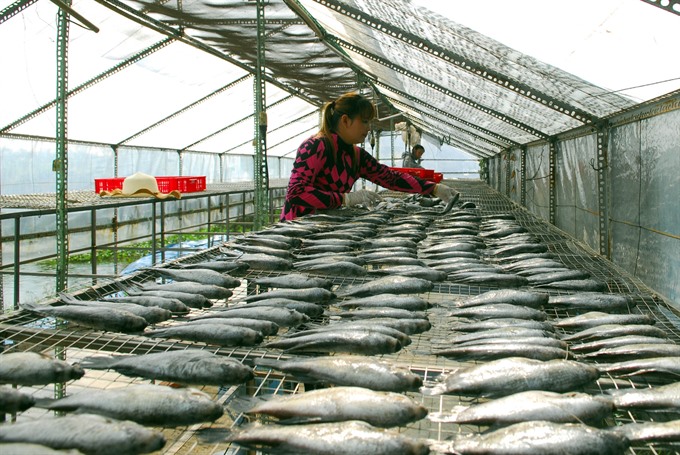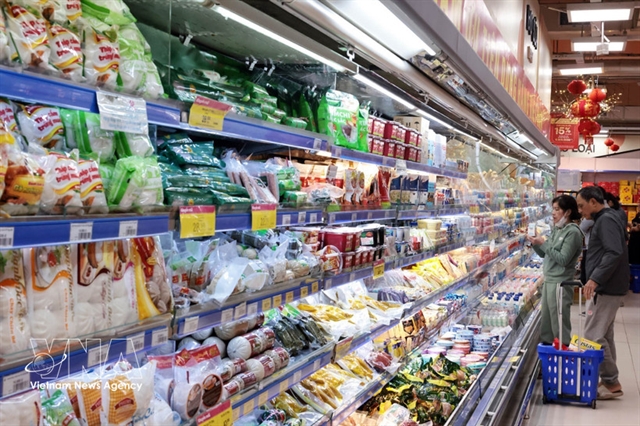 Society
Society

The co-operative model is seen as a production model to develop agriculture in HCM City. But in fact, it has not yet created wide-ranging links or attracted farmers.
 |
| Workers at the Tương Lai Seafood Cooperative in HCM City lay gouramis out to dry. — VNA/VNS Photo Mạnh Linh |
HCM CITY — Most farmers in HCM City have not taken to the co-operative model because they do not understand its functions and benefits fully, officials say.
Trần Ngọc Hổ, deputy director of the municipal Agriculture and Rural Development Department, said the model has helped develop farming households since the 2012 Law on Co-operatives came into force.
While it "has attracted only 15 per cent of farmers, their income is higher than households who don’t take part in co-operatives," Hổ told the Nông Thôn Ngày Nay (Countryside Today) newspaper.
However co-operatives are still small-scale, focusing mostly on the supply of inputs for members. They do not have proper production and sales plans, he said. In several cases, members have not contributed their dues because they still don’t know how to make the co-ops work effectively, he added.
Võ Thành Dũng, deputy director of the Trường Thịnh Agriculture Co-operative, said that many co-operatives were unsuccessful because they lacked capital and assets as collateral for securing loans.
The application of science and technology was also limited the investment costs were too high, he said.
While the household as a production unit has contributed greatly to the agriculture sector’s successes, the predominantly small-scale operations were not efficient, not benefiting from economies of scale.
Hổ also said that limited knowledge and skills under household farming made it difficult for them to approach banks, exploit post-harvest technologies, and sign contracts with enterprises.
“Currently, some 77 per cent of agriculture production in the city is carried out by households but it cannot be the main model for the future," Hổ said.
Other models like large scale farms, joint ventures and enterprises were also struggling to expand because they lack land and investment.
“Co-operatives must focus on solving farmers’ failures rather than replacing farmers in production and business. Farmers in co-operatives will benefit more than people outside the group,” said Associate Professor Nguyễn Văn Ngãi at HCM University of Agriculture and Forestry.
Although many agricultural co-operatives have been established, many have not developed, and some have even closed despite many supportive policies.
However, the co-operative model was still necessary as a key part of the country’s economic development, he said.
Dr Võ Thị Kim Sa of the Agriculture and Rural Development Staff Management School said as the agriculture sector became more competitive, small farmers would fail.
“Co-operatives can help them, but first they should know the role and benefits of this model. Transparency of assets under collective and private ownership when farmers participate in co-operatives is a big issue. And the co-operative needs a good business manager to gather farmers,” he said.
According to the agriculture department, the city currently has 41 co-operatives with 2,235 members. — VNS




